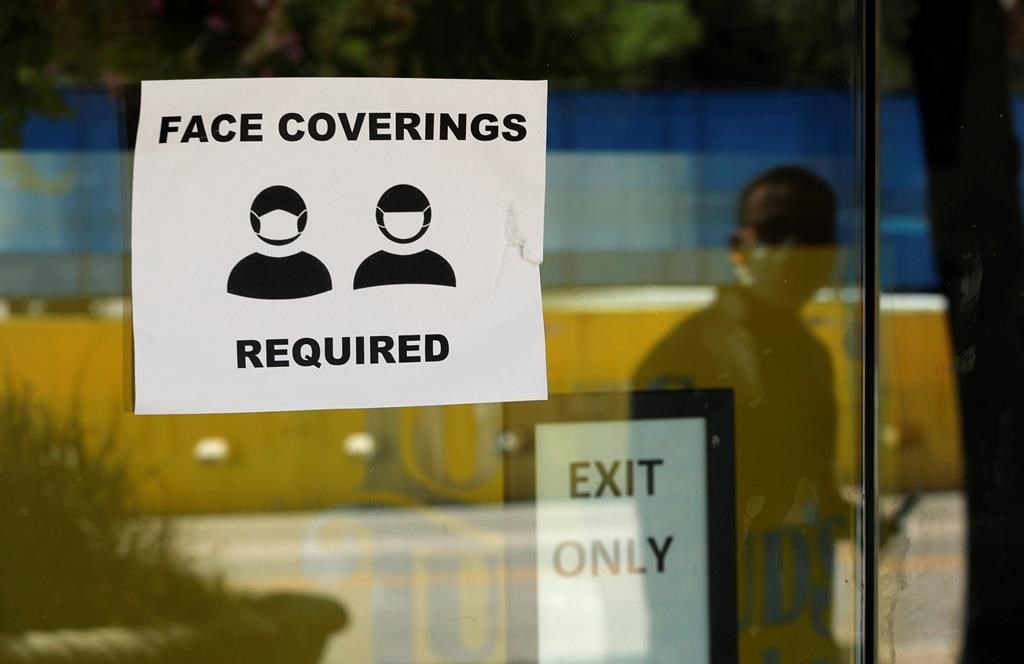Dr. Deena Hinshaw has said time and time again that Albertans need to “work together” to get through the COVID-19 pandemic, but according to one former provincial health minister, the collaborative relationship between the province’s top physician and health minister is a critical part of successful emergency response.

Former health minister Fred Horne, who was in office and worked closely with Dr. James Talbot during the 2013 flood that devastated much of southern Alberta, told Global News on Friday the “relationship with the chief medical officer is probably the most important relationship.”
“It was really important that we were able to work directly together,” he said.
“That… I was able to be informed about what needed to happen and about the risks that were involved, but also to have the chance to talk to someone who I’d be working closely with in terms of communicating to Albertans.”
In recent weeks, the relationship between Hinshaw and the UCP government, as well as how it responds to her public health recommendations, has been called into question, with speculation that government officials were not taking her advice seriously.
When leaked secret recordings of meetings between her and other officials involved in the province’s pandemic response were published by the CBC, Hinshaw shot down claims that she and the government were at odds on the overall approach to slowing the spread of the novel coronavirus in Alberta.
Hinshaw did admit at the time, however, that she and officials don’t always agree on next steps forward, but said differing opinions from various vantage points are “critical” to effective decision-making.

Get weekly health news
“While the recordings that were referenced in some of the news stories today indicate that, at times, I have felt frustrated — as I am a human being — the reality is that it is critical to have multiple perspectives and that those perspectives are all heard,” she said.

Hinshaw also reiterated past statements that she’s felt listened to and respected when addressing elected officials on the pandemic response.
Horne echoed Hinshaw’s sentiment, saying it’s not uncommon for there to be disagreements between officials, but ultimately, the minister and top doctor have the “responsibility… to achieve a consensus.”
“That is what builds trust and confidence,” Horne said. “Whether you’re talking to Albertans and informing them or, quite honestly, whether you’re going back to your premier and cabinet and in making recommendations about what needs to happen.”
He said there “isn’t necessarily a lot of debate,” but said the interactions are rather the medical officer of health bringing the minister up to speed on developments and suggesting the best way to respond to them, as well as highlighting immediate and future risks.
Horne said it’s also crucial that the minister and medical officer be able to recognize when their course of action needs to change, and admitted that can be a hard to thing to do.
“The best course of action… today can change depending on data, depending on events, depending on things that you really have no idea about,” he explained.
“And so that ability to change course and to explain why changes or pivots… are necessary, is really important. And that message has got to be the same message from both the chief medical officer and the minister.”
Horne said he didn’t see any value in criticizing the way the current government is navigating this public health crisis, saying a former minister “second-guessing or criticizing” real-time decisions isn’t helpful.
“I think… what I hope I can do that’s constructive is just kind of drive home the unique role of the chief medical officer of health,” he said.
“The fact that it’s a partnership, it’s an important partnership and relationship for a minister of health.”
Amid a second state of public health emergency, Alberta recorded 1,828 new COVID-19 infections on Friday, with the province’s test positivity rate increasing to 10.5 per cent — a new milestone that Hinshaw said was “grim.”
The province also provided more information on its contingency planning, including the potential procurement of field hospitals if the health-care system continues to be overwhelmed by COVID-19 hospitalizations and ICU admissions.



Comments